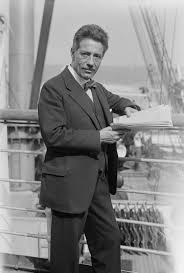Sinatra made a hit out of Kurt Weill’s Speak Low in 1943, and would so again with September Song.
So spare a thought for what the composer intended.
Zu soon!
Und jetzt, Mrs Composer:
Love it.
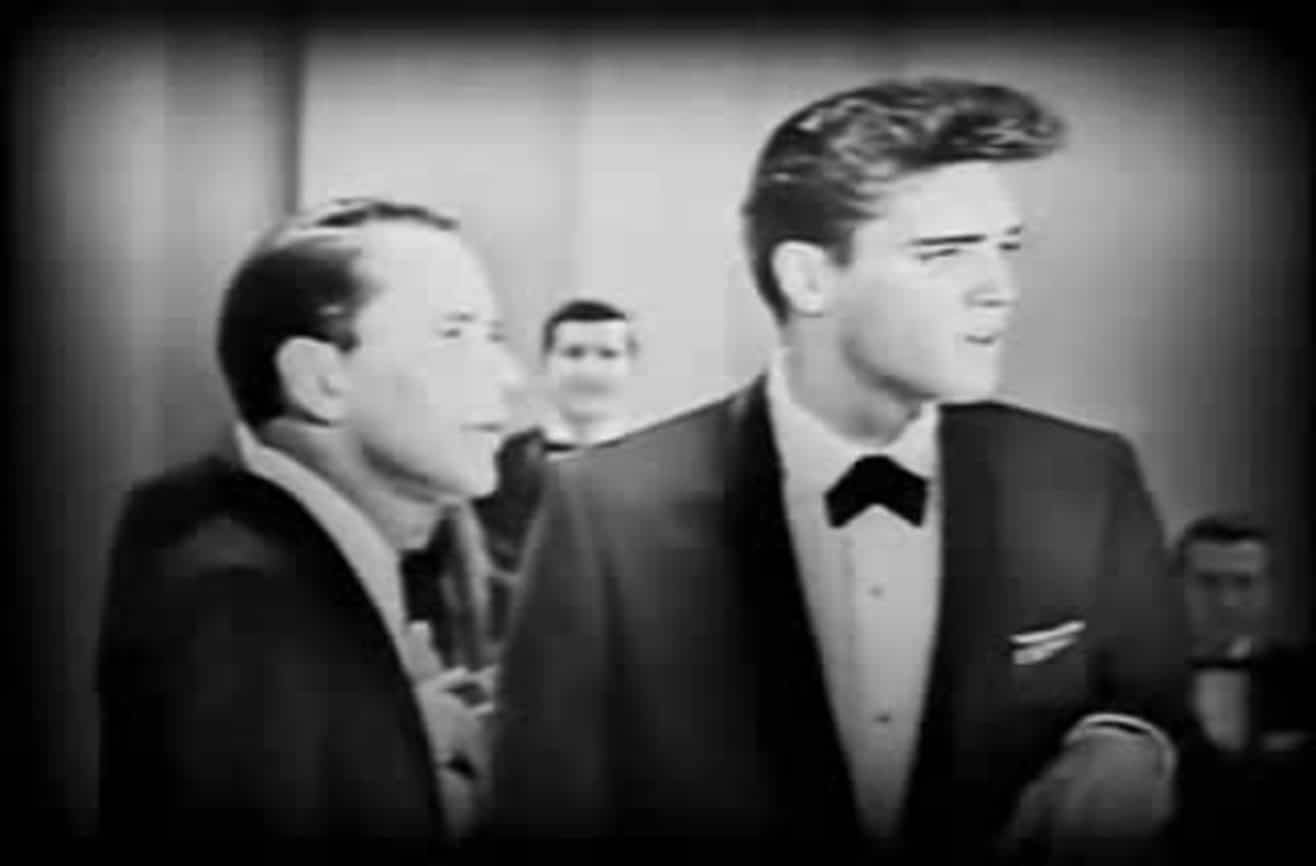
Sinatra made a hit out of Kurt Weill’s Speak Low in 1943, and would so again with September Song.
So spare a thought for what the composer intended.
Zu soon!
Und jetzt, Mrs Composer:
Love it.

While the Concertgebouw’s Mahler cycle in May 2020 is looking increasingly unlikely, the Leipzig Gewandhaus today announced a full symphonic cycle for May 2021.
Ten international orchestras will be involved.
Sofia Gubaidulina, 88, is to be Gewandhaus composer for the next two seasons.
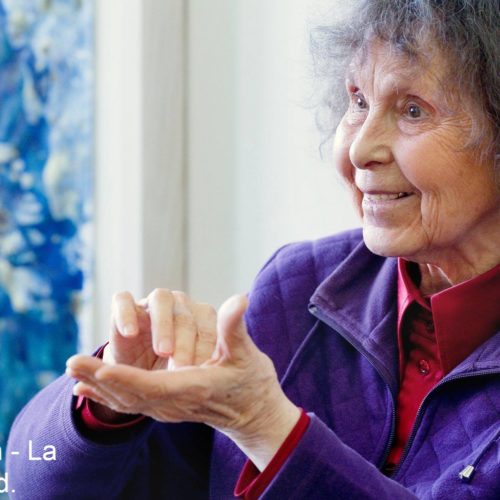
In contrast to the Met, which won’t.
The Philharmonic has just cancelled the rest of its season with this announcement:
Members of the New York Philharmonic will retain all health benefits through their current
contract (September 20, 2020). All members will be paid minimum scale from April 1 through
30, 2020, then 75% of scale through May 31, 2020. (The Philharmonic staff is working from
home during this period in which concerts are cancelled and the Lincoln Center Campus is
closed.) To help the Philharmonic reach out to its community during the crisis, the musicians
have agreed to allow the Philharmonic to use all the assets in its considerable media archives, to
be distributed through a newly developed, free portal. Currently, the New York Philharmonic is
projecting incremental operating losses of approximately $10 million directly due to the COVID-
19 pandemic.
President and CEO Deborah Borda said: “The decision to cancel our concerts was particularly
painful: music is a powerful source of comfort and healing, and we know that this closing is as
profound a loss for our audiences as it is to our musicians and, indeed, the institution. As the
situation continues to rapidly evolve, we are developing plans to address the ever-changing and
unpredictable landscape. In our 178-year history, the New York Philharmonic has weathered the
US Civil War and two World Wars and survived the 1918 Spanish flu pandemic. We will be
back!”
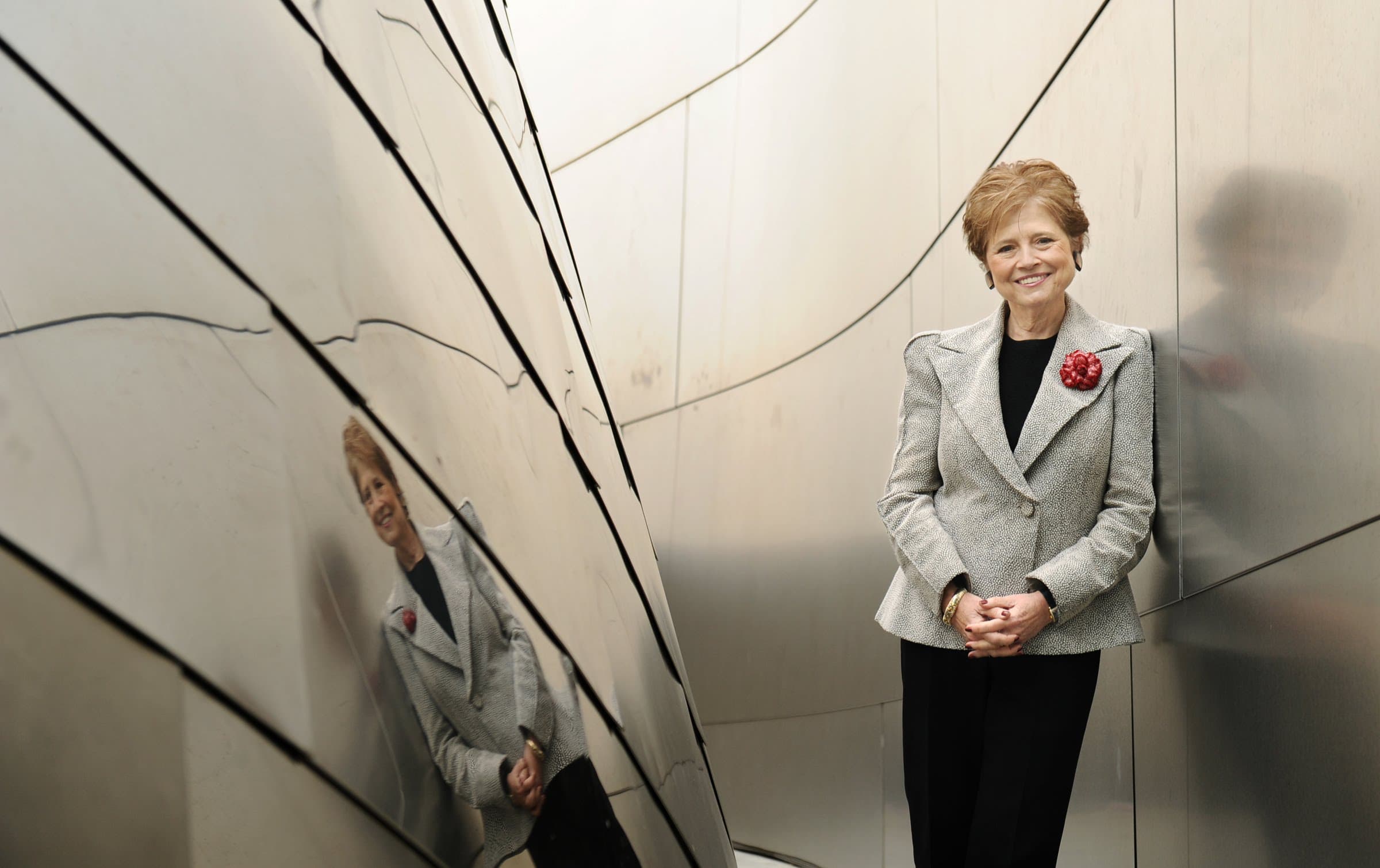
The death has been reported of Jean Leber, 80, founder of the much-recorded Paris Octet and a progressive conservatoire director. He had been diagnosed with Covid-19.
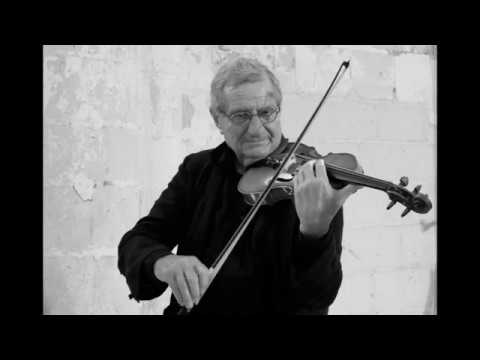
The composer was working on an American children’s opera around the time of his death in 1950.
Barrie Kosky, unfurling his next season at Berlin’s Komische Oper today, announced plans to piece the Mark Twain fragments together for the first time.
‘The show will go on,’ he declared.
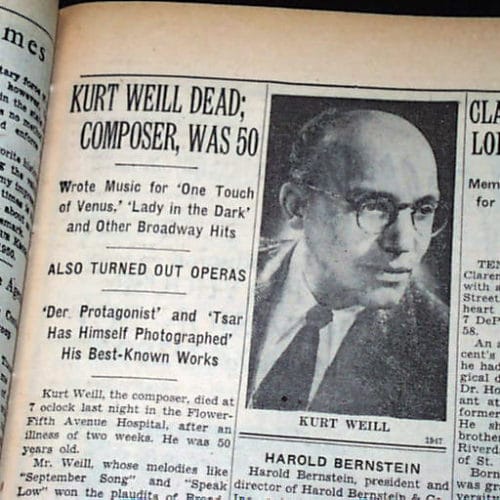
Here’s the one-man season launch
Culture Minister Monika Grütters has just announced what she called a ‘rescue umbrella for the cultural, creative and media sectors’.
‘We know the needs, we know the despair,’ said Grütters. ‘The cultural sector in particular is characterized by a high proportion of self-employed people who now have existential problems. I am therefore happy to be able to say: Help is coming – as quickly and as unbureaucratically as possible! I would like to thank the Minister of Economic Affairs, Finance and Labor very sincerely for taking into account the concerns and interests of the artists and the creative and media landscape that we have brought to the table. This shows that the Federal Government as a whole is aware of the unique importance of our cultural, creative and media landscape.’
The Federal Government will provide Corona emergency aid for self-employed and small businesses totalling up to 50 billion euros.
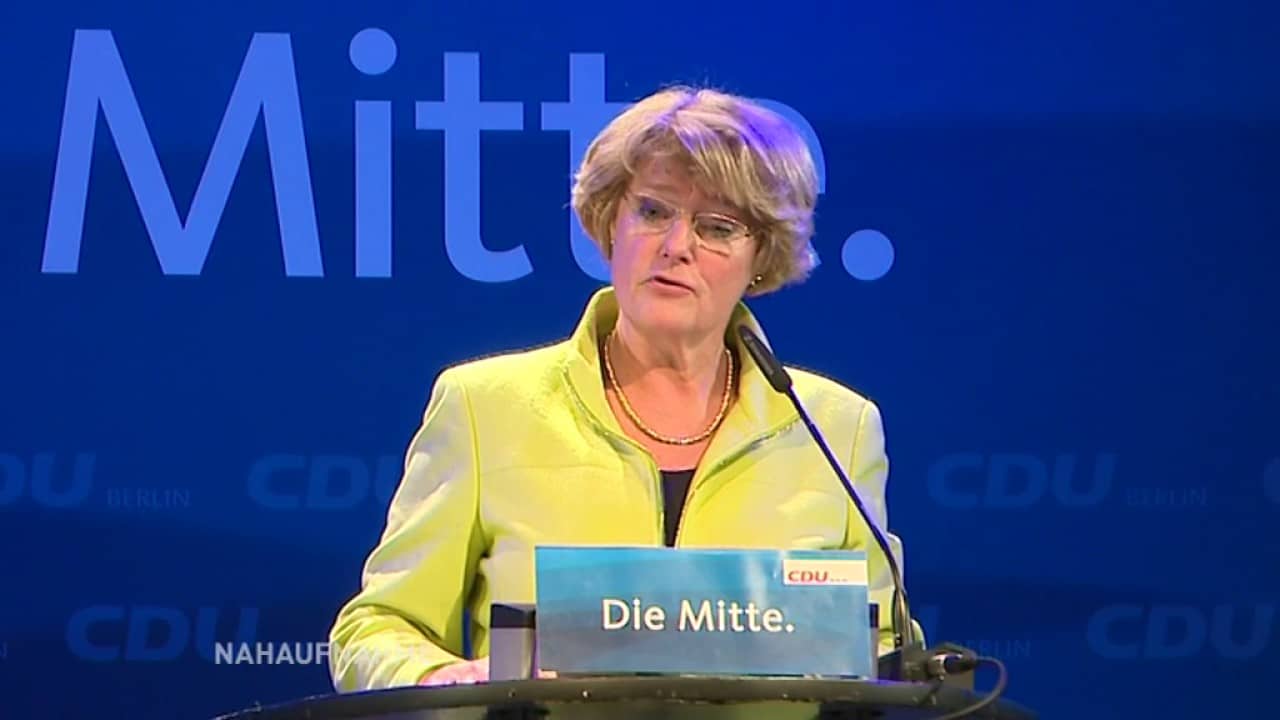
The Met’s fastest-rising soprano is the latest to face Zsolt Bognar in Living the Classical Life.
She is wonderfully strraightforward, addressing every question head-on, no matter how personal it might be. ‘My Instagram is a mixture of me in glamorous gowns…. and me sweaty and disgusting from running with no makeup on. On Instagram people show more skin, they get more likes. I’m sorry about that.’
She is wonderfully engaging.
Watch.

One of the side-effects of the lockdown is that a handful of international performers, grounded for the first time in their careers, are advertising instrumental tuition online.
Professional teachers tell us that some of their students are dropping out in favour of a ‘star’ tutor.
If the tutors were Heifetz or Milstein, that might be excusable, but they appear to be mostly middle-rank performers with time on their hands and no regard for whom they might be harming. It’s a small-scale thing so far. Let us know if you have been affected.
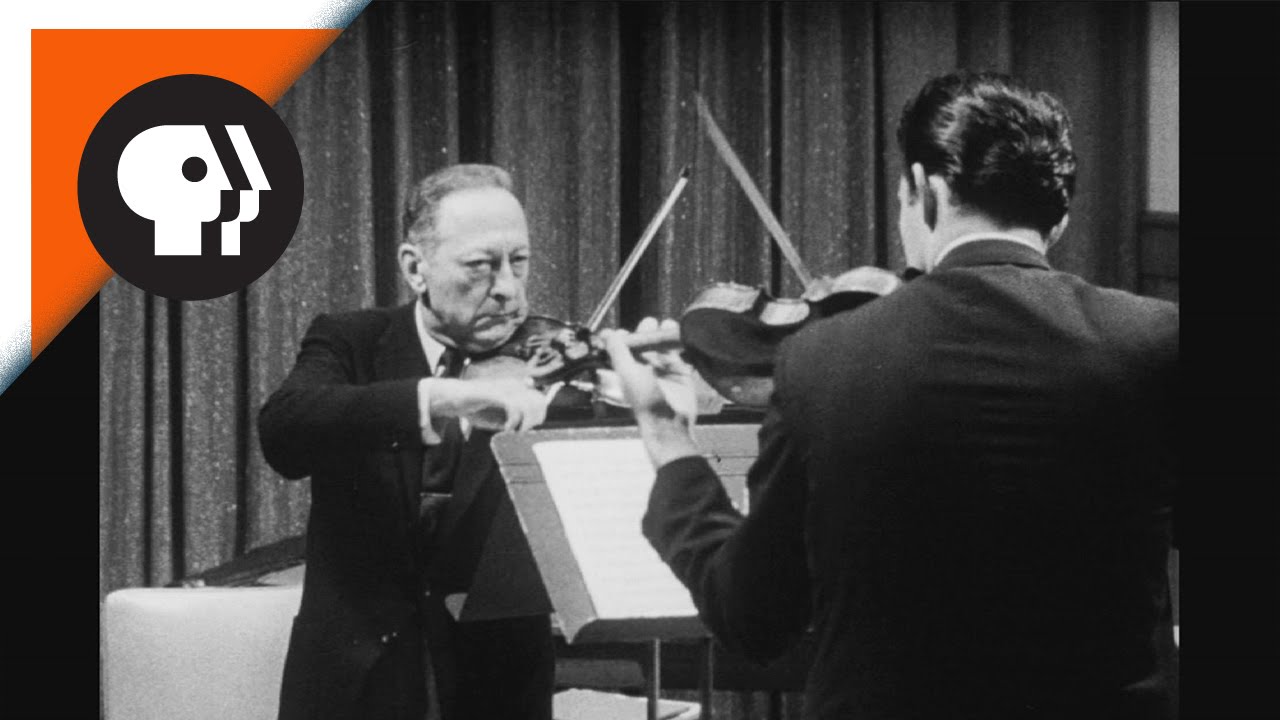
Meantime, spare a thought for the professional examiners who have lost their occupation overnight. Here’s what we hear from one of them:
As you will know ABRSM cancelled all exams from last Wednesday. I knew that by seeing it on Facebook- despite being am examiner. Notification came to us in a mid morning email the next day. The examining panel is freelance. Compensation? Not a penny. When many orchestras and arts organisations are stretching themselves to the limit to do right by their freelancers, is it too much to think that a flagship, international organisation like ABRSM should do the same?
Slipped Disc has been in touch with the team behind the Rotterdam Philharmonic’s sensational Beethoven 9th, played by musicians who are self-isolated in their homes.
The orchestra’s two Einsteins are called Stijn te Hennepe and Mike Schaperclaus.
We hit them with some of your questions.
SD Whose idea was it, and why Beethoven 9?
RP The Rotterdam Philharmonic Orchestra has a department called: CreAtions. We create and produce new formats for the orchestra to find and engage new audiences for our concerts. Together with our marketing department we came to this idea. Beethoven 9 is a piece that stands for unity and realizing we are all one in this time. That if we stand together we can overcome. I think it’s a message needed today more than ever before.
SD How did you decide the number of players?
RP We asked the musicians to join, the ones that were available at last-minute notice. More wanted to but we had a really tight schedule.
SD What technology did you use for recording?
RP: The video might look ‘easy’ but its not. We used really professional hard and software, since we also have to protect the level of recording that we put of there Rotterdam Philharmonic Orchestra. Besides that we believe that the quality is part of the impact a message like this has.
(We asked Mike for further specifications). Mike adds: In general, what we do is we pre-produce a click-track which the musicians play to. Keep in mind that you have to think about tuning and intonation. Then we put all those videos in sync and work on the sound with professional studio software and equipment. It is a pity to give away more because it might mean it take away a bit of the magic. But we want to give everybody the possiblity to enrich the world with great music.
SD How long did it take to edit?
RP: We just had a week to make it all work, from idea to production to result. But lets put it this way: we hardly slept that week.
SD How many rehearsals did you have?
RP The individual level of the musicians of the orchestra is very high, we had no rehearsals but our musicians always take responsibility and made sure they did what was needed to be able to contribute on this level.
SD Was there a patch-up session?
RP We worked very hard in both pret as well as post production to come to this result.
SD You are world stars now. What’s your next release?
RP Although we are very pleased with the ‘success’ of the video we are much more pleased with the endless feedback we received. People from all over the world that found some comfort in the music that we all love so much. These messages and reactions keep us going and make us feel thankful and realize everybody can contribute in these dark days when it is done from the heart! A creative mind never stops!! So yes, we might have some new exiting ideas that we would love to share with the world soon!
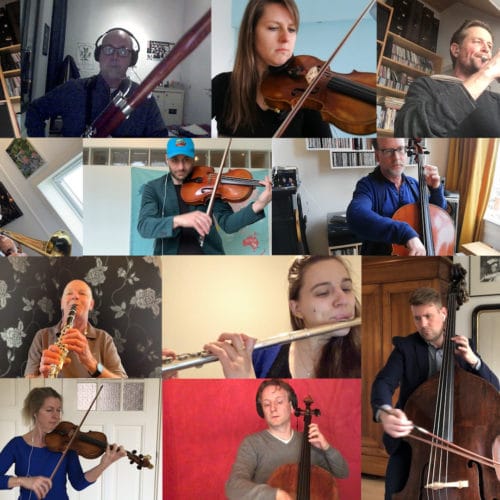
Watch the video again here.
The most reassuring violinist that ever lived, in a wonderfully arcance recording from 1924:
Courtesy of Brinton Smith
